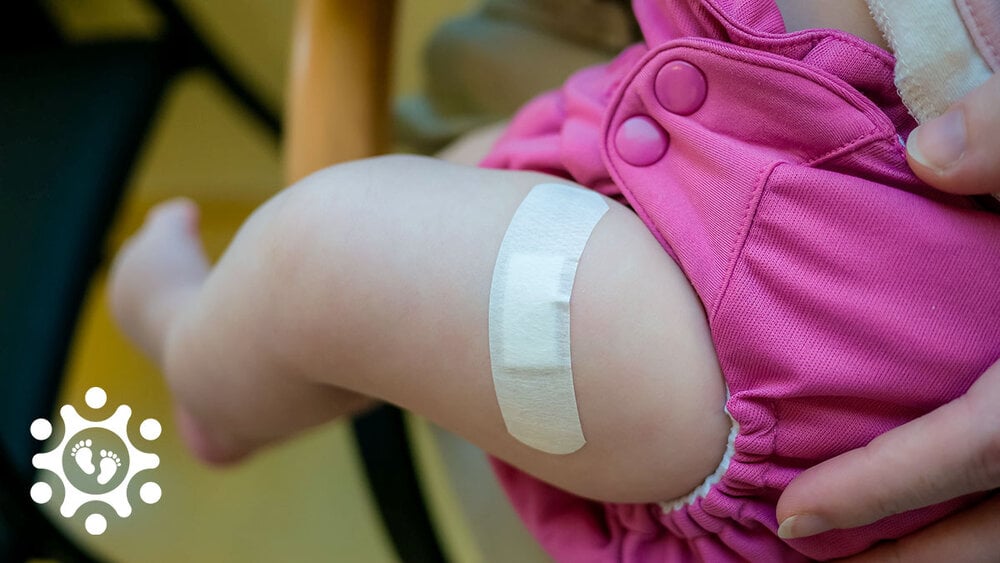Your Child’s Immunization Schedule as They Grow

To vaccinate or not vaccinate? That is a debate where you will find strong opinions on both sides of the argument.
The Centers for Disease Control and Prevention (CDC) recommends vaccinating your child from birth through 18 years. However, depending on where you live and your child’s health, your pediatrician may recommend something different.
The CDC offers the following immunization schedule as a guide for when and what types of vaccines your child should receive.
Birth
- Hepatitis B (first dose): Hepatitis B vaccine can prevent hepatitis B. Hepatitis B is a liver disease that can cause mild illness lasting a few weeks or lead to a serious, lifelong illness.
Month 1
- Hepatitis B (second dose): Your pediatrician can give this vaccination during month one or two.
Month 2
- Rotavirus (first dose): The rotavirus vaccine protects against rotavirus infections, which can cause severe diarrhea among young children.
- DTaP (Diphtheria, Tetanus, Pertussis) (first dose):
- Diphtheria (D) can lead to difficulty breathing, heart failure, paralysis, or death.
- Tetanus (T) causes a painful stiffening of the muscles. Tetanus can lead to serious health problems, including being unable to open the mouth, having trouble swallowing and breathing, or death.
- Pertussis (aP), also known as “whooping cough,” can cause uncontrollable, violent coughing, making it hard to breathe, eat, or drink. Pertussis can be severe in babies and young children, causing pneumonia, convulsions, brain damage, or death. It can cause weight loss in teens and adults, loss of bladder control, passing out, and rib fractures from severe coughing.
-
Haemophilus Influenzae Type b (Hib) (first dose): Haemophilus influenzae type b can cause many different kinds of infections. These infections usually affect children under five years of age and adults with certain medical conditions. Hib bacteria can cause mild illnesses, such as ear infections or bronchitis, or cause severe conditions like bloodstream infections. Severe Hib infection, also called invasive Hib disease, requires treatment in a hospital and can sometimes result in death.
-
Pneumococcal Conjugate (PVC13) (first dose): The vaccine helps protect against the 13 types of pneumococcal bacteria that most commonly cause severe infections in children and adults. It can also help prevent ear infections and pneumonia caused by those 13 types of pneumococcal bacteria.
-
Inactivated Poliovirus (first dose): Polio, or poliomyelitis, is a crippling and potentially deadly disease caused by poliovirus. The virus spreads from person to person and can invade an infected person’s brain and spinal cord, causing paralysis.
Month 4
- Rotavirus (2nd dose)
- DTaP (Diphtheria, Tetanus, Pertussis) (second dose)
- Haemophilus Influenzae Type b (Hib) (second dose)
- Pneumococcal Conjugate (PVC13) (second dose)
- Inactivated Poliovirus (second dose)
Month 6
- Hepatitis B (3rd dose): This vaccination can be given between six and fifteen months.
- DTaP (Diphtheria, Tetanus, Pertussis) (third dose)
- Haemophilus Influenzae Type b (Hib) (third dose)
- Pneumococcal Conjugate (PVC13) (third dose)
- Inactivated Poliovirus (third dose): This vaccination can be given between six and fifteen months.
Month 12
- Haemophilus Influenzae Type b (Hib) (fourth dose)
- Pneumococcal Conjugate (PVC13) (fourth dose)
- Measles, Mumps & Rubella (MMR) (first dose): This vaccine prevents measles, mumps, and rubella. Sometimes MMRV is given, which includes chickenpox vaccination as well.
- Varicella (first dose): This vaccine prevents chickenpox.
- Hepatitis A (first dose): Hepatitis A is a highly contagious, short-term liver infection caused by the hepatitis A virus.
4-6 Years Old
- DTaP (Diphtheria, Tetanus, Pertussis) (fifth dose)
- Inactivated Poliovirus (fourth dose)
- Measles, Mumps & Rubella (MMR) (second dose)
- Varicella (second dose)
11-12 Years Old
- Tdap (Tetanus, Diphtheria, Pertussis)
- Meningococcal (first dose): Meningococcal disease refers to any illness caused by bacteria called Neisseria meningitides, also known as meningococcus [muh-ning-goh-KOK-us]. These illnesses are often severe and can be deadly. They include infections of the lining of the brain and spinal cord (meningitis) and bloodstream infections (bacteremia or septicemia).
16 Years Old
- Meningococcal (second dose)
Questions About Immunizations?
To learn more about your child’s immunizations, visit the CDC’s website or talk with your pediatrician.


